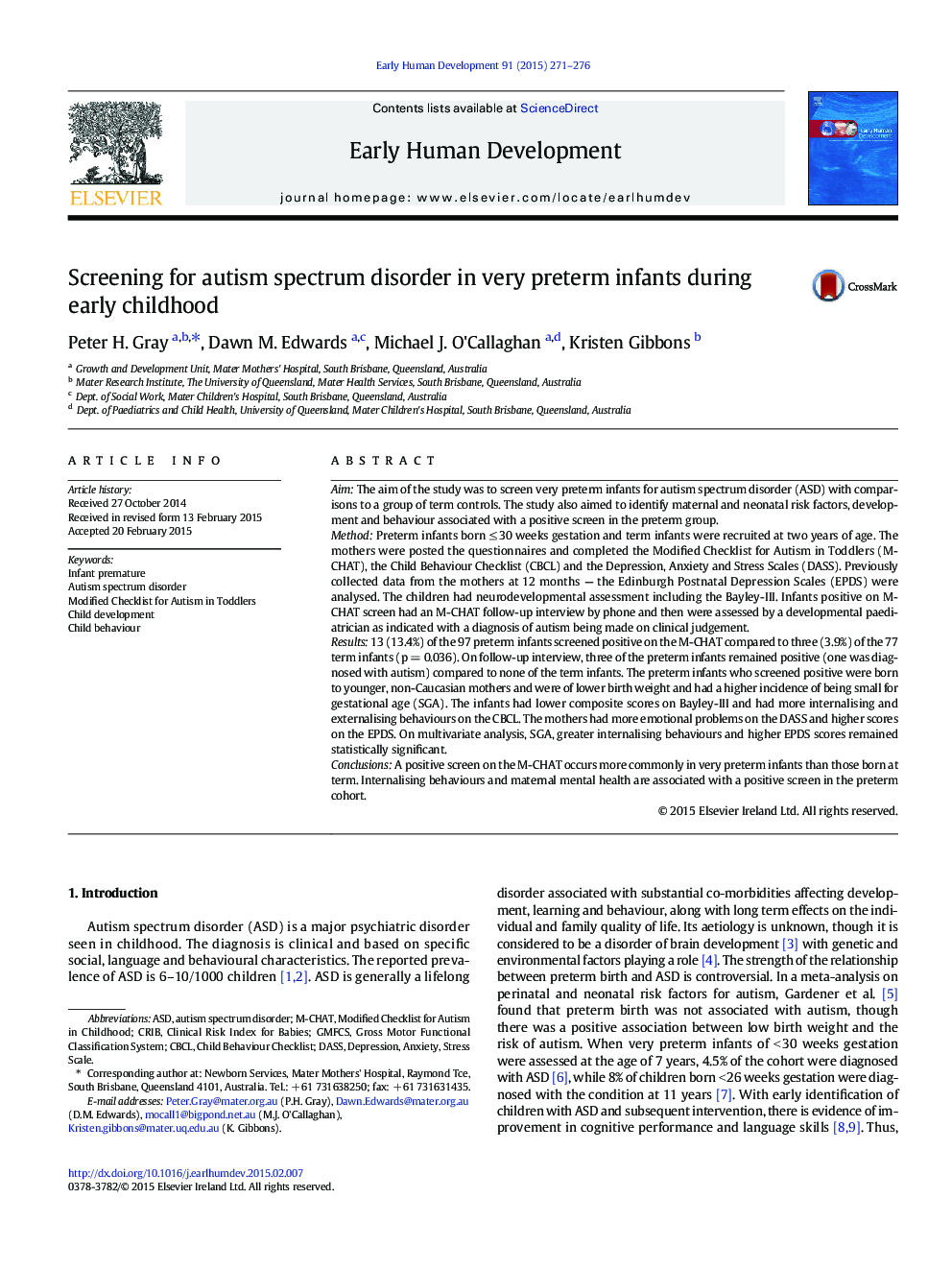| Article ID | Journal | Published Year | Pages | File Type |
|---|---|---|---|---|
| 3916883 | Early Human Development | 2015 | 6 Pages |
•The prevalence of a positive screen on the M-CHAT is increased in very preterm infants compared to preterm controls.•It is important that a follow-up interview be performed following a positive screen on the M-CHAT.•There is an association between a positive M-CHAT screen with internalising child behaviours and maternal mental health.
AimThe aim of the study was to screen very preterm infants for autism spectrum disorder (ASD) with comparisons to a group of term controls. The study also aimed to identify maternal and neonatal risk factors, development and behaviour associated with a positive screen in the preterm group.MethodPreterm infants born ≤ 30 weeks gestation and term infants were recruited at two years of age. The mothers were posted the questionnaires and completed the Modified Checklist for Autism in Toddlers (M-CHAT), the Child Behaviour Checklist (CBCL) and the Depression, Anxiety and Stress Scales (DASS). Previously collected data from the mothers at 12 months — the Edinburgh Postnatal Depression Scales (EPDS) were analysed. The children had neurodevelopmental assessment including the Bayley-III. Infants positive on M-CHAT screen had an M-CHAT follow-up interview by phone and then were assessed by a developmental paediatrician as indicated with a diagnosis of autism being made on clinical judgement.Results13 (13.4%) of the 97 preterm infants screened positive on the M-CHAT compared to three (3.9%) of the 77 term infants (p = 0.036). On follow-up interview, three of the preterm infants remained positive (one was diagnosed with autism) compared to none of the term infants. The preterm infants who screened positive were born to younger, non-Caucasian mothers and were of lower birth weight and had a higher incidence of being small for gestational age (SGA). The infants had lower composite scores on Bayley-III and had more internalising and externalising behaviours on the CBCL. The mothers had more emotional problems on the DASS and higher scores on the EPDS. On multivariate analysis, SGA, greater internalising behaviours and higher EPDS scores remained statistically significant.ConclusionsA positive screen on the M-CHAT occurs more commonly in very preterm infants than those born at term. Internalising behaviours and maternal mental health are associated with a positive screen in the preterm cohort.
